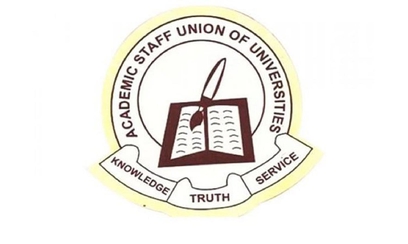
The national leadership of the Academic Staff Union of Nigerian Universities, ASUU, will meet today, Tuesday, to evaluate its position on the ongoing strike by its members.
The development comes after ASUU disclosed that the Government’s Renegotiation Team, led by Alhaji Yayale Ahmed, came to the negotiation table with a documented response to the union’s demands and made some offers to it.
In a strike bulletin issued on Monday, the union acknowledged that progress was being recorded in certain areas such as the release of third-party deductions, arrears of promotions, mainstreaming of Earned Academic Allowance, EAA, confiscation of University of Abuja land, and victimization of its members in KSU, LASU and FUTO.
Bellnews reports that ASUU members on Monday held congresses across its branches in the various universities to vote on whether the union should suspend or continue its labour action.
Recall that the union had given a 14-day ultimatum to the federal government for the conclusion and implementation of the renegotiation of the 2009 FGN/ASUU agreement, as well as addressing other demands of its members.
However, there’s indication that ASUU wasn’t ready to throw in the towel yet as feelers are that many of the branches have voted in support of the continuation of the strike.
Bellnews spoke with some officials of ASUU at the University of Abuja, Nnamdi Azikiwe University, Awka, and the University of Nigeria, Nsukka. They confided in DAILY POST that the matter is far from being over.
According to them, their members in respective branches were in support of the continuation of the strike despite some offers being made to ASUU by the Nigerian government.
One of the ASUU officials said, “You know that critical information about ASUU is always not for public consumption.
“This Congress is taking place all over the nation today because the NEC meeting will take place tomorrow (Tuesday).
“Referendum will be conducted later. Here in our branch, almost everyone was in support for the strike to continue. It’s just a formality. So we are awaiting the NEC to make our position official,” he said.
Meanwhile, the Nigeria Labour Congress, NLC, has given a four-week ultimatum to the Federal Government to meet the demands of ASUU and other unions in tertiary institutions or risk a nationwide shutdown by labour.
NLC President, Joe Ajaero made the threat in Abuja on Monday following a meeting of the union and leaders of tertiary institutions’ based unions.
Ajaero said the four weeks was to enable the government to address all the outstanding issues of the unions, including the 2009 agreement with ASUU.
The NLC chief, who addressed a press conference at the Labour House with all national leaders of the educational unions present, said the union will begin an indefinite strike if the government fails to meet their demands.
Similarly, a public affairs analyst and communications specialist at Peaceland University, Enugu, Nduka Odo, has attributed the ongoing strike by the ASUU to what he described as the government’s long-standing passive attitude toward education.
In a chat with Bellnews on Monday, Odo said the situation in the nation’s universities was a result of deliberate neglect by those in power, who view education as an expenditure rather than an investment.
He noted that such a mindset had left public universities underfunded, demoralized and struggling to survive.
He also condemned the poor treatment of lecturers in Nigeria, describing them as the “builders of nations” who have been treated as expendable.
According to him, the recurring pattern of failed promises and unfulfilled agreements had made strikes inevitable.
Odo urged the government to treat education as a national emergency by paying lecturers their entitlements, improving university infrastructure, and honouring agreements reached with ASUU.
He said: “No serious nation treats its lecturers the way Nigeria does. The people who shape the minds that build nations are treated as expendable, as though they perform a charity service.
“When you owe lecturers months of salaries, deny them research grants, and expect world-class performance, what message are you sending?
“You cannot despise intellectuals and still hope to lead a progressive society. The treatment meted out to Nigerian lecturers reflects a government that has misplaced its priorities.
“Each time ASUU raises its voice, the same cycle repeats — promises, committees, silence, and another strike. Government negotiators often approach the table with arrogance, not humility.
“They act as though the lecturers are asking for a favour, not fighting for the survival of public education. That posture alone tells us that education has never been central to Nigeria’s development agenda.
“It is time to stop pretending. The strike is not about ASUU being stubborn; it is about the government’s failure to honour agreements and respect the academia.
“If the same energy deployed in political campaigns or defending corrupt contracts were invested in our universities, strikes would be history.
“But when those who make decisions send their children abroad, they cannot feel the rot they have created at home.
“My advice to the government is simple: treat education as a national emergency, not a recurring inconvenience.
“Pay lecturers their due, upgrade facilities, and honour signed agreements.
“Until the government stops playing politics with education, the cycle of strikes and empty promises will continue — and each repetition erodes what is left of our national integrity.”

